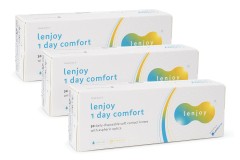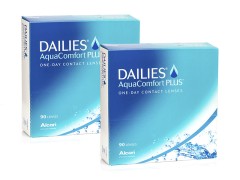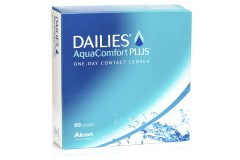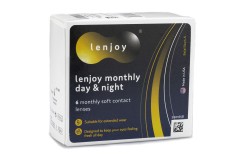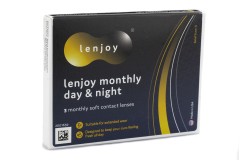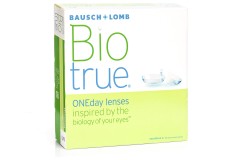Which contact lenses are best for me?

Which contact lenses are best suited to your eyes, your visual impairment and your lifestyle depends on many factors. First and foremost, contact lenses are designed to correct your vision problems as well and as easily as possible. But they should also be comfortable to wear and preferably not be noticeable in your eyes. Dry eyes and allergies should also be prevented.
Today, there are countless contact lenses available that can compensate for any visual defect, curvature and sensitivity of the eye. That makes it damn hard to find the right contact lens. Should it be daily lenses or monthly lenses? What do spherical contact lenses and aspherical lens design mean? And what is the significance of silicon hydrogel contact lenses?
The Lentiamo guide provides information on how to choose the right contact lenses for you!
What types of lenses do I find on the market?
To put it bluntly: loads! But the first distinction we have to make regards the wearing times. How long can they be worn for? A simple, clear example: Daily lenses can be worn for one day only You put them in when you wake up and you discard them at bedtime. No cleansing solution needed, no specific care to keep them safe. This makes them particularly suitable for those situations where it’s not so easy to set up a nice, clean space to put them away, like when you’re travelling, you’re on holiday or practicing sports, for example. Then you have:
These are lenses that can be worn for the length of time indicated by their name, obviously counting the days from when you open the blister and looking after them correctly with a good multipurpose solution for soft contact lenses, like Solunate Multi-purpose
Spherical or aspherical? Which would be better for me?
Spherical lenses follow the curvature of the cornea and are used to correct the two most common visual deficiencies: myopia and hypermetropia. Aspherical lenses have a flattened edge, which gives slightly clearer and more accurate vision, compared to spherical lenses, particularly on the edge of the visual field. On some occasions they serve to correct the lighter forms of astigmatism, depending on the eye specialist’s recommendations.
And what if I wish to wear lenses day and night? Are there contact lenses I can keep in when I sleep?
Yes, they exist. They’re the so-called extended wear, continuous wear lenses and they can be worn up to 30 days and 29 nights, hydrating and disinfecting them periodically. The materials used for these lenses let enough oxygen pass through to the cornea. Bear in mind that your eye specialist has to give you the go-ahead, before you can wear these lenses in a 100% continuous way, it may be suggested to you, for example, that you take them out for a few hours every so many days.
If I’m astigmatic, what are the right lenses for me?
Astigmatism is a rather common visual impairment where the cornea is curved in a non uniform way. Very often astigmatism is accompanied by myopia and/or hypermetropia. Your eye doctor will be able to give you all the details related to your visual condition with the correct prescription for astigmatism. The lenses that will be prescribed in case of astigmatism are called toric lenses.
I can’t see properly from the distance, nor from near. Are there multifocal contacts, like the lenses for glasses?
Yes, there are and just like with the lenses for glasses, they have two or more focal points: usually one for nearsightedness and the other for farsightedness. So you could, for example, read and drive with the same lenses. Multifocal lenses are a modern take on the older „bifocal lenses“, which were limited to two focal points.
So, let’s sum it all up with this simple diagram:
| Type of contact lenses | What does it work for |
|---|---|
| Spheric lenses | Myopia or Hypermetropia |
| Aspheric lenses | Myopia or Hypermetropia |
| Toric lenses | Myopia or Hypermetropia + Astigmatism |
| Bifocal/multifocal lenses | Myopia or Hypermetropia + Presbyopia |
| Toric multifocal lenses | Myopia or Hypermetropia + Astigmatism and Presbyopia |
Now that you have all the necessary info about the different types of soft lenses that are available, go back to square one: check your eye doctor and ask them to convert your glasses prescription to contacts, so that you can find out which lenses are suitable for your eyes.
Would you like to have an even clearer understanding of the terminology regarding contact lenses? Visit our Glossary page. In case you have further doubts or queries, don’t hesitate to write us a comment. We’ll be glad to answer.
None of what’s included in this article is intended to substitute medical recommendations from a specialist and should only be interpreted as pure journalistic information.


